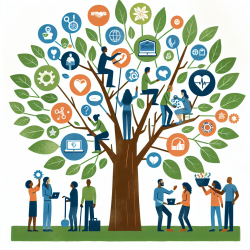The healthcare landscape is ever-evolving, with new research and evidence continuously emerging. For practitioners in rehabilitation settings, staying abreast of these developments is crucial for providing high-quality care. This is where Clinical Research Coordinators (CRCs) play a pivotal role. Acting as knowledge brokers, CRCs facilitate the translation of research findings into practical applications within clinical settings.
The Importance of Knowledge Translation
Knowledge translation (KT) is a dynamic process that involves disseminating, synthesizing, and applying research findings to improve healthcare practices. In rehabilitation, KT ensures that the latest evidence informs clinical decision-making, ultimately enhancing patient outcomes. CRCs are instrumental in this process, acting as bridges between researchers and clinicians.
Understanding the Role of CRCs
CRCs are highly trained professionals who manage and facilitate research activities within healthcare institutions. Their responsibilities include:
- Information Management: CRCs gather and synthesize research data, tailoring it to meet the needs of clinical teams.
- Mediation: They act as intermediaries between researchers and clinicians, ensuring a common understanding of goals and facilitating communication.
- Facilitation: CRCs organize workshops, seminars, and meetings to disseminate knowledge and foster collaboration among stakeholders.
Tackling Barriers to Effective KT
The study "Clinical research coordinators’ role in knowledge translation activities in rehabilitation: a mixed methods study" highlights several barriers that CRCs face in their roles:
- Lack of Time: Both CRCs and clinicians often struggle with time constraints that hinder their ability to engage fully in KT activities.
- Lack of Resources: Limited access to administrative support and digital tools can impede effective knowledge dissemination.
- Cultural Differences: Variations in language and priorities between research and clinical environments can create misunderstandings.
Strategies for Enhancing KT Activities
The study suggests several strategies to overcome these challenges and enhance the effectiveness of KT activities:
- Cultivate Strong Communication Skills: CRCs should develop strong interpersonal skills to effectively mediate between researchers and clinicians.
- Create Clear Action Plans: Establishing clear goals and expectations for KT activities can align efforts across different departments.
- Pursue Continuous Training: Ongoing professional development in project management and digital tools can empower CRCs to perform their roles more effectively.
The Way Forward
The role of CRCs is vital for bridging the gap between research and practice. By implementing the strategies outlined above, practitioners can enhance their skills in knowledge translation, leading to improved patient care. The insights from this study offer a roadmap for optimizing the role of CRCs in rehabilitation settings.
If you're interested in delving deeper into the findings of this study, you can access the original research paper: Clinical research coordinators’ role in knowledge translation activities in rehabilitation: a mixed methods study.










